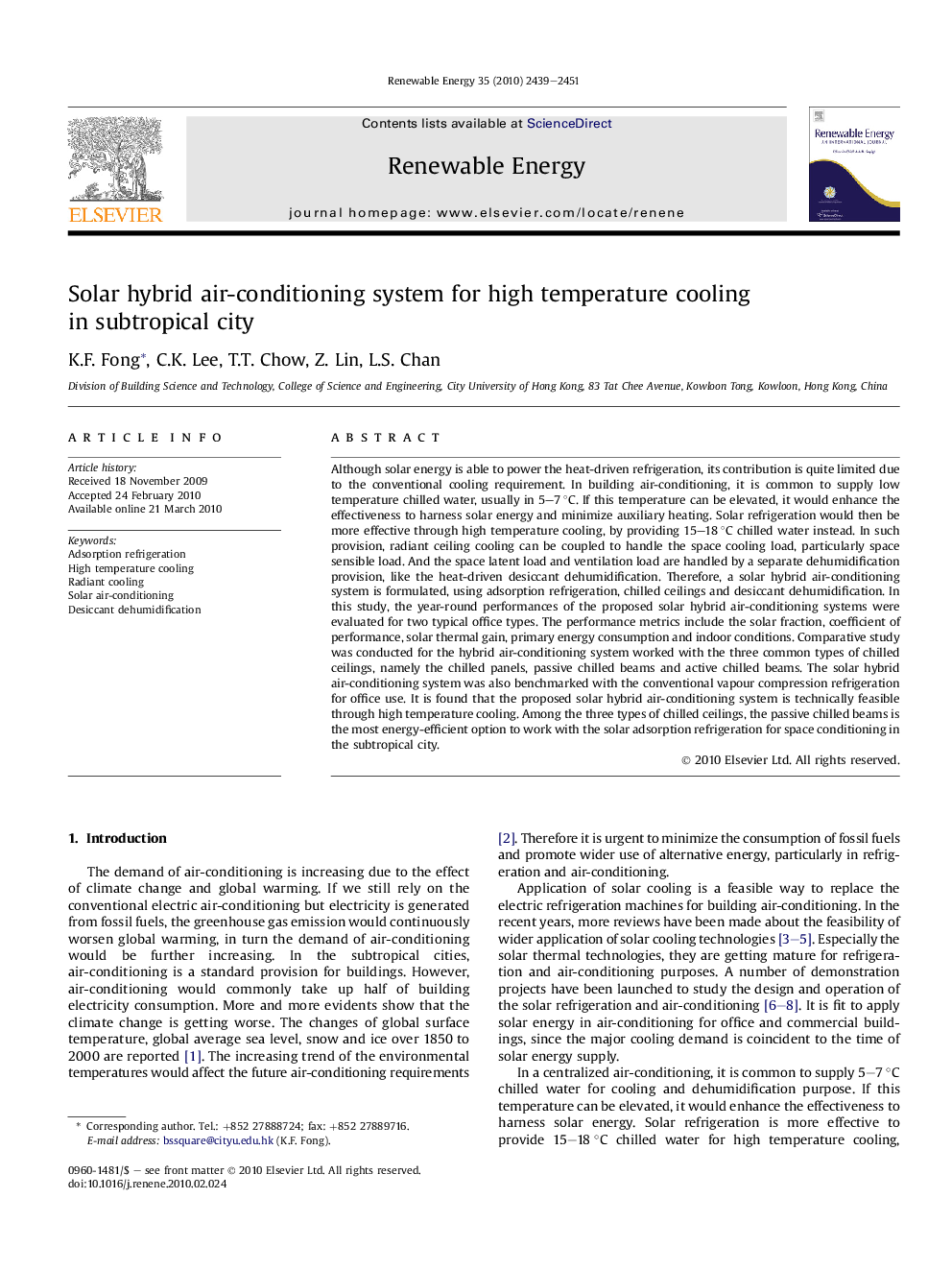| Article ID | Journal | Published Year | Pages | File Type |
|---|---|---|---|---|
| 301545 | Renewable Energy | 2010 | 13 Pages |
Although solar energy is able to power the heat-driven refrigeration, its contribution is quite limited due to the conventional cooling requirement. In building air-conditioning, it is common to supply low temperature chilled water, usually in 5–7 °C. If this temperature can be elevated, it would enhance the effectiveness to harness solar energy and minimize auxiliary heating. Solar refrigeration would then be more effective through high temperature cooling, by providing 15–18 °C chilled water instead. In such provision, radiant ceiling cooling can be coupled to handle the space cooling load, particularly space sensible load. And the space latent load and ventilation load are handled by a separate dehumidification provision, like the heat-driven desiccant dehumidification. Therefore, a solar hybrid air-conditioning system is formulated, using adsorption refrigeration, chilled ceilings and desiccant dehumidification. In this study, the year-round performances of the proposed solar hybrid air-conditioning systems were evaluated for two typical office types. The performance metrics include the solar fraction, coefficient of performance, solar thermal gain, primary energy consumption and indoor conditions. Comparative study was conducted for the hybrid air-conditioning system worked with the three common types of chilled ceilings, namely the chilled panels, passive chilled beams and active chilled beams. The solar hybrid air-conditioning system was also benchmarked with the conventional vapour compression refrigeration for office use. It is found that the proposed solar hybrid air-conditioning system is technically feasible through high temperature cooling. Among the three types of chilled ceilings, the passive chilled beams is the most energy-efficient option to work with the solar adsorption refrigeration for space conditioning in the subtropical city.
